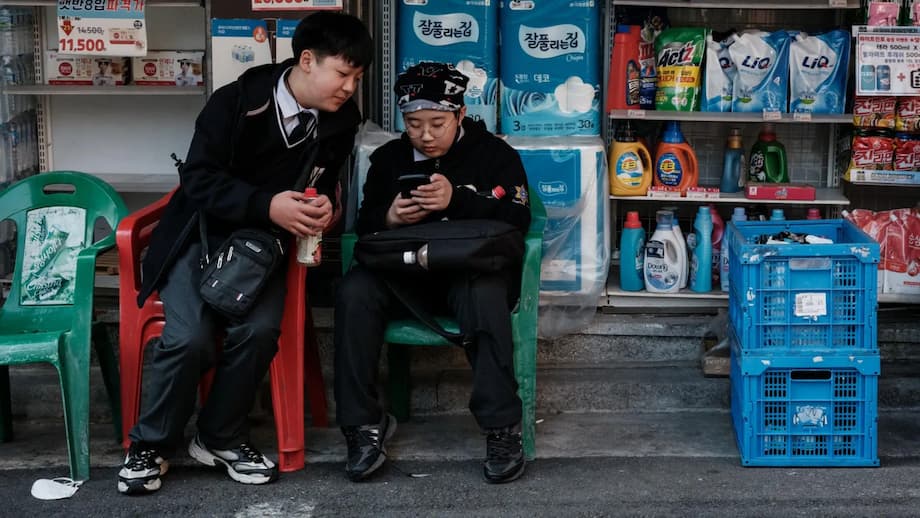South Korea’s Nationwide School Phone Ban: What Does It Mean?
In a move that has sparked both applause and controversy, South Korea has passed a sweeping law banning the use of mobile phones and smart devices during class hours in all elementary, middle, and high schools. Set to take effect in March 2026, this legislation positions South Korea among a growing list of nations seeking to address the challenges of youth smartphone addiction, classroom distraction, and the broader impact of digital technology on learning and well-being.
The law, which passed the National Assembly with 115 votes in favor out of 163 present, reflects mounting concerns among parents, educators, and lawmakers about the pervasive influence of smartphones in students’ lives. With nearly every South Korean owning a smartphone—98% according to Pew Research Center, the highest rate among 27 surveyed countries—the issue has become a national conversation about education, mental health, and digital rights.
Why Ban Phones? The Concerns Driving the Law
South Korea is one of the world’s most digitally connected societies, but this connectivity comes with a cost. A 2024 government survey found that nearly 43% of South Koreans aged 10 to 19 are considered overly dependent on their smartphones, almost double the national average. More than a third of teenagers admit struggling to control their screen time, and 22% report feeling anxious if they cannot access social media accounts.
Lawmakers and educators argue that excessive phone use undermines academic performance and disrupts classroom environments. Many parents worry that constant connectivity fuels cyberbullying, social isolation, and anxiety, while also interfering with face-to-face socialization and learning. As Cho Jung-hun, an opposition lawmaker who introduced the bill, put it:
“Our youth’s addiction to social media is at a serious level now. Our kids, their eyes are red every morning. They are on Instagram until 2 or 3am.”
These concerns are not unique to South Korea. Countries such as France, Finland, Italy, the Netherlands, China, and Australia have implemented various forms of school phone bans, often citing similar worries about distraction, addiction, and mental health.
Classroom Disruption and Academic Pressure
Teachers report that smartphones are a frequent source of classroom disruption. An internal survey by the conservative Korean Federation of Teachers’ Association found that nearly 70% of teachers had experienced disruptions due to student phone use, with some incidents escalating to verbal or even physical confrontations. The new law gives teachers a firmer legal basis to restrict device use, aiming to restore order and focus in classrooms.
However, critics argue that the law targets the symptom—phone use—rather than the root causes of student stress and distraction, such as South Korea’s famously competitive education system and the intense pressure surrounding the Suneung college entrance exam. Some educators and students believe that simply banning phones will not address deeper issues like academic anxiety, social isolation, or the need for digital literacy.
What Does the Law Actually Say?
The legislation is a revision to the Elementary and Secondary Education Act and applies to all public and private elementary, middle, and high schools nationwide. Its key provisions include:
- Ban on Use During Class: Students are prohibited from using mobile phones and smart devices during class hours. The law does not stipulate criminal penalties but empowers school principals and teachers to enforce the ban.
- Scope of Authority: Teachers and school officials are authorized to restrict device use not only during lessons but also elsewhere on school premises, if deemed necessary.
- Exemptions: Devices may be used for educational purposes, emergencies, or as assistive tools for students with disabilities or special educational needs, with prior approval from school officials.
- Education on Digital Habits: Schools are required to provide lessons on healthy technology use and digital citizenship, aiming to foster responsible habits rather than mere compliance.
- Implementation: The law takes effect March 1, 2026, coinciding with the start of the new school year.
While many schools already had their own smartphone restrictions, the new law standardizes these rules nationwide and provides a clear legal framework for enforcement.
How Will Schools Enforce the Ban?
Enforcement will largely be left to individual schools, which can set their own policies within the law’s guidelines. Some schools may require students to leave phones in lockers or designated storage areas during the day, while others may allow possession but strictly prohibit use during class. Violations can be met with warnings, counseling, or other disciplinary measures, but the law emphasizes guidance and education over punishment.
Importantly, the law does not criminalize students or impose fines. Instead, it seeks to balance the need for discipline with respect for students’ rights and well-being.
Debate and Division: Supporters and Critics Speak Out
The passage of the law has revealed deep divisions among teachers, parents, students, and advocacy groups.
Supporters: Protecting Learning and Well-being
Many parents and teachers welcome the ban, seeing it as a necessary step to protect students from distraction, addiction, and cyberbullying. The Education Ministry argues that the law safeguards students’ right to learn and supports teachers’ ability to teach effectively. Supporters also point to international studies suggesting that phone bans can improve student focus and academic outcomes. For example, a recent study in the Netherlands found that prohibiting mobile phones in schools led to better concentration among students.
Critics: Rights, Realism, and Root Causes
However, not everyone is convinced. Some teachers’ unions and youth advocacy groups argue that the law infringes on students’ digital rights, freedom of communication, and privacy. The left-wing Jinbo Party has criticized the measure, claiming it prevents adolescents from learning to make responsible decisions and adapt to the digital world. As one student told reporters:
“Banning phones during class doesn’t address how much we use them outside school. We need education about healthy use, not just confiscation.”
Others worry that the law could be used to justify excessive surveillance or punitive measures, and that it fails to address the underlying pressures of South Korea’s high-stakes education system.
Legal and Human Rights Considerations
The debate over the law has also touched on constitutional rights. Opponents argue that writing phone restrictions into law infringes on students’ rights to privacy and the pursuit of happiness. However, the National Human Rights Commission of Korea recently shifted its stance, stating that limits on phone use for educational purposes do not violate rights, given the negative impact of excessive device use on learning and emotional health.
Global Context: How Does South Korea Compare?
South Korea’s move is part of a global trend as countries grapple with the impact of digital technology on young people. Here is how the new law fits into the international landscape:
- France: Banned mobile phones in primary and middle schools since 2018, with some exceptions for educational use.
- Finland: Implemented partial bans, especially for younger students.
- Italy, Netherlands, China: Enacted comprehensive restrictions on phone use in schools.
- Australia: State-level bans in Victoria and New South Wales prohibit phone use during school hours across all grades. Australia also recently expanded its ban on social media for teenagers.
Studies from these countries suggest that phone bans can improve student focus and reduce classroom disruptions, but the effectiveness often depends on how policies are implemented and whether they are accompanied by broader education on digital literacy and mental health.
Why Is South Korea’s Law Significant?
Unlike many countries that rely on school-level policies or administrative guidelines, South Korea has enshrined its ban in national law. This provides a uniform standard and legal clarity, but also raises the stakes in debates over rights and enforcement. The law’s passage with bipartisan support reflects a rare consensus in South Korean politics, driven by widespread public concern over youth smartphone addiction and its consequences.
What Happens Next? Implementation and Challenges
With the law set to take effect in March 2026, schools, teachers, and families have time to prepare for the transition. The Education Ministry is expected to issue detailed guidelines and support materials for schools, including curricula on healthy digital habits and resources for counseling students struggling with addiction.
Key challenges ahead include:
- Ensuring Fair and Consistent Enforcement: Schools must balance discipline with respect for students’ rights and individual needs, especially for those who rely on devices for accessibility.
- Addressing Out-of-School Use: Since the ban only applies during class hours, broader efforts are needed to educate students and families about healthy technology use at home and in the community.
- Supporting Teachers: Teachers will need training and support to enforce the law fairly and effectively, and to handle potential conflicts with students and parents.
- Evaluating Impact: Policymakers and researchers will be watching closely to assess whether the ban leads to improved academic performance, mental health, and social development, or whether unintended consequences emerge.
In Summary
- South Korea has passed a national law banning mobile phone and smart device use during class hours in all schools, effective March 2026.
- The law aims to combat youth smartphone addiction, improve academic focus, and address concerns about cyberbullying and mental health.
- Teachers are empowered to enforce the ban, with exemptions for educational use, emergencies, and students with disabilities.
- The law has sparked debate over student rights, effectiveness, and whether it addresses deeper issues in South Korean education.
- South Korea joins a global trend, with countries like France, Finland, Italy, the Netherlands, China, and Australia implementing similar restrictions.
- Implementation will require careful balancing of discipline, rights, and education on healthy digital habits.












